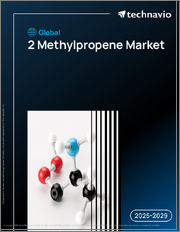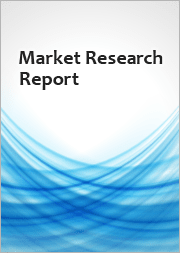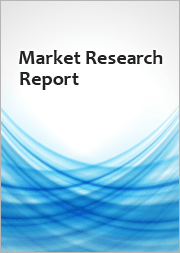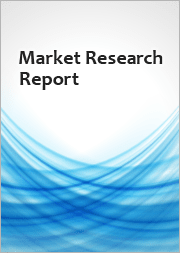
|
시장보고서
상품코드
1831956
합성 로프 시장 보고서 : 원재료, 유통 채널, 최종사용자, 지역별(2025-2033년)Synthetic Rope Market Report by Raw Material, Distribution Channel, End User, and Region 2025-2033 |
||||||
세계 합성 로프 시장 규모는 2024년에 19억 5,700만 달러에 달했습니다. IMARC Group은 2033년까지 시장 규모가 30억 2,970만 달러에 달하고, 2025-2033년 연평균 성장률(CAGR)은 4.73%를 보일 것으로 예측했습니다.
합성 로프는 인공 화학물질과 나일론, 폴리에스테르, 폴리프로필렌, 고탄성 폴리에틸렌(HMPE)과 같은 강한 섬유로 만들어집니다. 내구성, 유연성, 다용도성, 내마모성 등 몇 가지 장점이 있습니다. 또한 부패, 곰팡이, 곰팡이, 곰팡이, 마모에 강하고 잦은 마찰을 견딜 수 있어 해안가 보트에서 사용하기에 적합합니다. 또한, 장식, 수상 스포츠, 낚시, 파티 텐트 라인, 야외 난간, 수영장 레인 등으로도 활용되고 있습니다. 현재 시추 및 채굴 분야에서 전 세계적으로 스틸 로프를 능가하는 인기를 누리고 있습니다.
합성 로프 시장 동향 :
심장 건강 증진, 관절염 증상 완화 등 해산물 섭취의 건강상의 이점에 대한 개인들의 인식이 높아지면서 전 세계적으로 해산물 판매에 긍정적인 영향을 미치고 있습니다. 이는 양식업 분야에서 합성 로프에 대한 수요를 자극하는 중요한 요인 중 하나입니다. 또한, 세계 인구 증가와 이에 따른 식량 안보에 대한 우려가 커지면서 많은 국가의 행정 기관은 양식 부문의 효율성과 생산성을 높이기 위해 다양한 전략을 채택하고 있습니다. 이 점이 오히려 시장의 성장을 더욱 촉진하고 있습니다. 이와는 별도로 에너지 수요의 급증과 해양 석유 생산 현장 증가로 인해 석유 및 가스 산업에서 합성 로프의 고용이 증가하고 있습니다. 또한 건설 산업에서 채굴 재료의 사용이 증가함에 따라 전 세계적으로 합성 로프에 대한 수요가 증가하고 있습니다. 이 외에도 주요 시장 기업들은 선단의 효율성과 생산성을 극대화하기 위해 고성능으로 풀리의 마모를 줄이고 내마모성을 높인 첨단 제품을 제공합니다. 이는 향후 몇 년 동안 시장 성장을 가속할 것으로 예측됩니다.
본 보고서에서 다룬 주요 질문
- 세계 합성 로프 시장 규모는?
- 2025-2033년 세계 합성 로프 시장 성장률 전망은?
- 세계 합성 로프 시장을 이끄는 주요 요인은?
- 코로나19가 세계 합성 로프 시장에 미치는 영향은?
- 세계 합성 로프 시장에서의 원료별 분류는?
- 세계 시장에서 합성 로프의 유통 채널별 분류는?
- 세계 합성 로프 시장에서의 최종 사용자별 분류는?
- 세계 합성 로프 시장에서 주요 지역은?
- 세계 합성 로프 시장의 주요 기업은?
목차
제1장 서문
제2장 조사 범위와 조사 방법
- 조사 목적
- 이해관계자
- 데이터 소스
- 1차 정보
- 2차 정보
- 시장 추정
- 보텀업 접근
- 톱다운 접근
- 조사 방법
제3장 주요 요약
제4장 서론
제5장 세계의 합성 로프 시장
- 시장 개요
- 시장 실적
- COVID-19의 영향
- 시장 예측
제6장 시장 분석 : 원재료별
- 폴리프로필렌
- 폴리에스테르
- 나일론
- 폴리에틸렌
- 특수 섬유
제7장 시장 분석 : 유통 채널별
- 직접 판매
- 유통업체
제8장 시장 분석 : 최종사용자별
- 해양 및 어업
- 석유 및 가스
- 스포츠 및 레저
- 건설
- 기타
제9장 시장 분석 : 지역별
- 북미
- 미국
- 캐나다
- 아시아태평양
- 중국
- 일본
- 인도
- 한국
- 호주
- 인도네시아
- 기타
- 유럽
- 독일
- 프랑스
- 영국
- 이탈리아
- 스페인
- 러시아
- 기타
- 라틴아메리카
- 브라질
- 멕시코
- 기타
- 중동 및 아프리카
제10장 SWOT 분석
제11장 밸류체인 분석
제12장 Porter의 Five Forces 분석
제13장 가격 분석
제14장 경쟁 구도
- 시장 구조
- 주요 기업
- 주요 기업 개요
- Atlantic Braids Ltd.
- Bexco nv-sa
- Bridon-Bekaert Ropes Group
- Cortland Limited(Enerpac Tool Group)
- English Braids Limited
- Koninklijke DSM N.V.
- LANEX a. s.
- Samson Rope Technologies
- Southern Ropes
- Teufelberger
- WireCo WorldGroup
- Yale Cordage
The global synthetic rope market size reached USD 1,957.0 Million in 2024. Looking forward, IMARC Group expects the market to reach USD 3,029.7 Million by 2033, exhibiting a growth rate (CAGR) of 4.73% during 2025-2033.
Synthetic ropes are made from artificial chemicals and strong fibers, such as nylon, polyester, polypropylene, or high modulus polyethylene (HMPE). They offer several advantages, including durability, flexibility, versatility, and wear resistance. Moreover, they are resistant to rot, mold, mildew, and abrasion and can withstand frequent friction, thereby making them suitable for utilization in coastal areas for boats. They are also utilized in decor, water sports, fishing, party tent lines, outdoor railings, and swimming pool lanes. At present, they are gaining traction in drilling and mining over steel ropes worldwide.
Synthetic Rope Market Trends:
The growing awareness among individuals about the health benefits of consuming seafood, which include promoting heart health and easing the symptoms of arthritis, is positively influencing its sales across the globe. This represents one of the key factors catalyzing the demand for synthetic ropes in the aquaculture sector. Moreover, due to the rising global population and subsequently growing food security concerns, governing agencies of numerous countries are adopting various strategies to enhance the efficiency and productivity in the aquaculture sector. This, in turn, is strengthening the growth of the market. Apart from this, the surging energy need and rising number of offshore oil production sites are resulting in the increasing employment of synthetic ropes in the oil and gas industry. Furthermore, the growing use of mining materials in the construction industry is driving the demand for synthetic ropes around the world. Besides this, the leading market players are offering advanced products with high performance, reduced pulley wear, and increased abrasion resistance to maximize fleet efficiency and productivity. This is projected to impel market growth in the coming years.
Key Market Segmentation:
Breakup by Raw Material:
- Polypropylene
- Polyester
- Nylon
- Polyethylene
- Specialty Fibers
Breakup by Distribution Channel:
- Direct Sales
- Distributors
Breakup by End User:
- Marine and Fishing
- Oil and Gas
- Sports and Leisure
- Construction
- Others
Breakup by Region:
- North America
- United States
- Canada
- Asia-Pacific
- China
- Japan
- India
- South Korea
- Australia
- Indonesia
- Others
- Europe
- Germany
- France
- United Kingdom
- Italy
- Spain
- Russia
- Others
- Latin America
- Brazil
- Mexico
- Others
- Middle East and Africa
Competitive Landscape:
The competitive landscape of the industry has also been examined along with the profiles of the key players being Atlantic Braids Ltd., Bexco nv-sa, Bridon-Bekaert Ropes Group, Cortland Limited (Enerpac Tool Group), English Braids Limited, Koninklijke DSM N.V., LANEX a. s., Samson Rope Technologies, Southern Ropes, Teufelberger, WireCo WorldGroup and Yale Cordage.
Key Questions Answered in This Report
- 1.How big is the global synthetic rope market?
- 2.What is the expected growth rate of the global synthetic rope market during 2025-2033?
- 3.What are the key factors driving the global synthetic rope market?
- 4.What has been the impact of COVID-19 on the global synthetic rope market?
- 5.What is the breakup of the global synthetic rope market based on the raw material?
- 6.What is the breakup of the global synthetic rope market based on the distribution channel?
- 7.What is the breakup of the global synthetic rope market based on the end user?
- 8.What are the key regions in the global synthetic rope market?
- 9.Who are the key players/companies in the global synthetic rope market?
Table of Contents
1 Preface
2 Scope and Methodology
- 2.1 Objectives of the Study
- 2.2 Stakeholders
- 2.3 Data Sources
- 2.3.1 Primary Sources
- 2.3.2 Secondary Sources
- 2.4 Market Estimation
- 2.4.1 Bottom-Up Approach
- 2.4.2 Top-Down Approach
- 2.5 Forecasting Methodology
3 Executive Summary
4 Introduction
- 4.1 Overview
- 4.2 Key Industry Trends
5 Global Synthetic Rope Market
- 5.1 Market Overview
- 5.2 Market Performance
- 5.3 Impact of COVID-19
- 5.4 Market Forecast
6 Market Breakup by Raw Material
- 6.1 Polypropylene
- 6.1.1 Market Trends
- 6.1.2 Market Forecast
- 6.2 Polyester
- 6.2.1 Market Trends
- 6.2.2 Market Forecast
- 6.3 Nylon
- 6.3.1 Market Trends
- 6.3.2 Market Forecast
- 6.4 Polyethylene
- 6.4.1 Market Trends
- 6.4.2 Market Forecast
- 6.5 Specialty Fibers
- 6.5.1 Market Trends
- 6.5.2 Market Forecast
7 Market Breakup by Distribution Channel
- 7.1 Direct Sales
- 7.1.1 Market Trends
- 7.1.2 Market Forecast
- 7.2 Distributors
- 7.2.1 Market Trends
- 7.2.2 Market Forecast
8 Market Breakup by End User
- 8.1 Marine and Fishing
- 8.1.1 Market Trends
- 8.1.2 Market Forecast
- 8.2 Oil and Gas
- 8.2.1 Market Trends
- 8.2.2 Market Forecast
- 8.3 Sports and Leisure
- 8.3.1 Market Trends
- 8.3.2 Market Forecast
- 8.4 Construction
- 8.4.1 Market Trends
- 8.4.2 Market Forecast
- 8.5 Others
- 8.5.1 Market Trends
- 8.5.2 Market Forecast
9 Market Breakup by Region
- 9.1 North America
- 9.1.1 United States
- 9.1.1.1 Market Trends
- 9.1.1.2 Market Forecast
- 9.1.2 Canada
- 9.1.2.1 Market Trends
- 9.1.2.2 Market Forecast
- 9.1.1 United States
- 9.2 Asia-Pacific
- 9.2.1 China
- 9.2.1.1 Market Trends
- 9.2.1.2 Market Forecast
- 9.2.2 Japan
- 9.2.2.1 Market Trends
- 9.2.2.2 Market Forecast
- 9.2.3 India
- 9.2.3.1 Market Trends
- 9.2.3.2 Market Forecast
- 9.2.4 South Korea
- 9.2.4.1 Market Trends
- 9.2.4.2 Market Forecast
- 9.2.5 Australia
- 9.2.5.1 Market Trends
- 9.2.5.2 Market Forecast
- 9.2.6 Indonesia
- 9.2.6.1 Market Trends
- 9.2.6.2 Market Forecast
- 9.2.7 Others
- 9.2.7.1 Market Trends
- 9.2.7.2 Market Forecast
- 9.2.1 China
- 9.3 Europe
- 9.3.1 Germany
- 9.3.1.1 Market Trends
- 9.3.1.2 Market Forecast
- 9.3.2 France
- 9.3.2.1 Market Trends
- 9.3.2.2 Market Forecast
- 9.3.3 United Kingdom
- 9.3.3.1 Market Trends
- 9.3.3.2 Market Forecast
- 9.3.4 Italy
- 9.3.4.1 Market Trends
- 9.3.4.2 Market Forecast
- 9.3.5 Spain
- 9.3.5.1 Market Trends
- 9.3.5.2 Market Forecast
- 9.3.6 Russia
- 9.3.6.1 Market Trends
- 9.3.6.2 Market Forecast
- 9.3.7 Others
- 9.3.7.1 Market Trends
- 9.3.7.2 Market Forecast
- 9.3.1 Germany
- 9.4 Latin America
- 9.4.1 Brazil
- 9.4.1.1 Market Trends
- 9.4.1.2 Market Forecast
- 9.4.2 Mexico
- 9.4.2.1 Market Trends
- 9.4.2.2 Market Forecast
- 9.4.3 Others
- 9.4.3.1 Market Trends
- 9.4.3.2 Market Forecast
- 9.4.1 Brazil
- 9.5 Middle East and Africa
- 9.5.1 Market Trends
- 9.5.2 Market Breakup by Country
- 9.5.3 Market Forecast
10 SWOT Analysis
- 10.1 Overview
- 10.2 Strengths
- 10.3 Weaknesses
- 10.4 Opportunities
- 10.5 Threats
11 Value Chain Analysis
12 Porters Five Forces Analysis
- 12.1 Overview
- 12.2 Bargaining Power of Buyers
- 12.3 Bargaining Power of Suppliers
- 12.4 Degree of Competition
- 12.5 Threat of New Entrants
- 12.6 Threat of Substitutes
13 Price Analysis
14 Competitive Landscape
- 14.1 Market Structure
- 14.2 Key Players
- 14.3 Profiles of Key Players
- 14.3.1 Atlantic Braids Ltd.
- 14.3.1.1 Company Overview
- 14.3.1.2 Product Portfolio
- 14.3.2 Bexco nv-sa
- 14.3.2.1 Company Overview
- 14.3.2.2 Product Portfolio
- 14.3.3 Bridon-Bekaert Ropes Group
- 14.3.3.1 Company Overview
- 14.3.3.2 Product Portfolio
- 14.3.3.3 Financials
- 14.3.4 Cortland Limited (Enerpac Tool Group)
- 14.3.4.1 Company Overview
- 14.3.4.2 Product Portfolio
- 14.3.5 English Braids Limited
- 14.3.5.1 Company Overview
- 14.3.5.2 Product Portfolio
- 14.3.6 Koninklijke DSM N.V.
- 14.3.6.1 Company Overview
- 14.3.6.2 Product Portfolio
- 14.3.6.3 Financials
- 14.3.6.4 SWOT Analysis
- 14.3.7 LANEX a. s.
- 14.3.7.1 Company Overview
- 14.3.7.2 Product Portfolio
- 14.3.8 Samson Rope Technologies
- 14.3.8.1 Company Overview
- 14.3.8.2 Product Portfolio
- 14.3.9 Southern Ropes
- 14.3.9.1 Company Overview
- 14.3.9.2 Product Portfolio
- 14.3.10 Teufelberger
- 14.3.10.1 Company Overview
- 14.3.10.2 Product Portfolio
- 14.3.11 WireCo WorldGroup
- 14.3.11.1 Company Overview
- 14.3.11.2 Product Portfolio
- 14.3.12 Yale Cordage
- 14.3.12.1 Company Overview
- 14.3.12.2 Product Portfolio
- 14.3.1 Atlantic Braids Ltd.



















